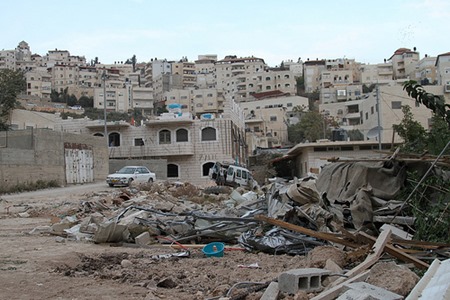Hard as it may seem, morality can exist in war. The basic principles of just war theory allow us to gain an idea of what this may look like: to be undertaken in a last resort and all actions a proportionate response to the initial provocation. I’m sure we can all agree that there are certain acts, such as rape and torture, that are abominable regardless of the situation. Not even war can justify some actions.
Yesterday, the French Government confirmed that the chemical weapon, Sarin, a nerve agent, has been used by the Syrian Government during the, now, 27 month conflict. The weapon causes the nerves in our body to act differently, inevitably resulting in our bodily deterioration (The Atlantic provides a comprehensive understanding here). The unnecessary force against the protestors in the Arab Spring was detrimental far beyond what anyone expected. A peaceful and legitimate protest has become an easily avoidable massacre of 120,000 civilians, some of those from neighbouring countries or drafted in forces. The continued use of Government forces, large-scale weapons and, now, use of the chemical weapons stock show how mindless the Government are in the slaughter of their own citizens, and anyone else caught up in the process.
Baker (in the May 23rd issue of Time) discusses, however, the true horrors of the Free Syrian Army (FSA) displayed in a video proudly uploaded to YouTube. The video, below, should be watched at your own peril. The man in the video, whose war name is Abu Sakkar (but whose real name is Khalid al-Hamad), appears to have killed a soldier and seems adamant on disgracing the pro-regime male further by cutting the heart and a lung from the body, proclaiming “I swear we will eat from your hearts and livers, you dogs of Bashar” and then raising one of the organs to his mouth and eating from it.
This one video, arguably, represents an extreme version of the mentality of soldiers in this war; we can only hope that this act of cannibalism is an isolated incident and is not repeated throughout the ranks. However, what can be confirmed is similarly horrific actions (if you ignore that murder in itself is a horrific action). Public executions, sexual assaults and the torture of children have been prominent throughout the prolonged conflict.
Furthermore, Western Intervention is looking increasingly unlikely, particularly from the USA; memories and lessons from the Iraq and Afghanistan wars as well as an inability to back a side. The “War on Terror” has shown that even our own soldiers, who we praise and call “heroes” are not clear of blood on their hands. Bradley Manning, currently on trial in America for leaking US military documents to Wikileaks, provided the below video to show how US soldiers were so eager to play with their toy guns and got frustrated when control took too long to give permission. In the video, we see that soldiers mistake cameras for weapons and even RPGs and decline faster, more hygienic and more successful treatment for two injured children. Those “bastards”, as we hear them called, were shot down during their innocent everyday lives by bloodthirsty soldiers.
But for none to get involved is to not challenge the distressing events of the war and to allow them to continue with no consequences, disregarding the many lives that are being ruined. However, even if, hypothetically, Western nations improved their code of conduct and rules of engagement for war, it would be difficult for them to choose which side of the battle to fight alongside of. To fight on the side of pro-regime supporters would be to justify the systematic and institutionalised murders of its own citizens and to help in the process; but to fight alongside the FSA would be to condemn the Government, help with the murders of citizens and to install the leadership of those who have committed such immoral actions, essentially legitimising them. Neither of these are attractive or moral in themselves, so a third option must be discovered, but this is harder than it may seem and requires multilateral agreement (which itself is hard to find.)
However, as the war continues to spill into the neighbouring countries of Turkey, Israel and Lebanon, this difficult decision looks increasingly like it will need to be made. War must be avoided at all costs, and intervention does not necessarily mean of the military sort. Large-scale mediation can, if properly implemented, work. But, regardless of this fact, the conflict needs to be ended as quickly and with as few lives lost in the process as possible. However, with continued criticisms of existing conflicts in the Middle-East and the atrocities committed by both sides of the war, the war appears simply unwinnable.

